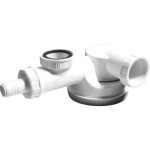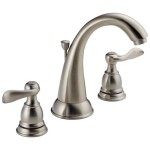Commercial Bathroom Countertop With Integral Sink: A Comprehensive Guide
Commercial bathrooms see a lot of wear and tear. They are subjected to constant use, cleaning, and the occasional accident. Therefore, choosing the right materials for your bathroom countertops and sinks is critical. One option that is gaining popularity is the commercial bathroom countertop with an integral sink. This type of countertop seamlessly integrates the sink into the surface, eliminating the need for a separate sink basin and providing a sleek, modern aesthetic.
This article will explore the advantages of using an integral sink in a commercial bathroom, discuss the various materials used for integral sink countertops, and provide insights into the benefits of choosing this specific design for your commercial space.
Advantages of an Integral Sink Countertop in Commercial Bathrooms:
Integrating the sink into the countertop presents numerous advantages, especially in a commercial setting. Below are some key benefits:
1. Enhanced Hygiene and Easy Cleaning:
The seamless design of an integral sink eliminates crevices and gaps where dirt, grime, and bacteria can accumulate. This makes cleaning easier and more efficient, contributing to a more hygienic environment. The smooth surface of the countertop is easier to wipe down, preventing the buildup of soap scum and other residue that can be common in high-traffic bathrooms.
2. Improved Aesthetics and Modern Appeal:
Integral sinks offer a clean, contemporary look that is highly sought-after in modern commercial spaces. The uninterrupted surface creates a sense of spaciousness, enhancing the overall aesthetic appeal of the bathroom. This sleek design can elevate the look of any commercial space, whether it's a hotel, office building, or restaurant.
3. Durable and Long-Lasting:
Commercial bathroom countertops with integral sinks are often made from robust materials designed to withstand heavy use and frequent cleaning. These materials resist scratches, stains, and impact damage, ensuring that the countertop remains in excellent condition for a prolonged period. This durability is crucial in high-traffic commercial bathrooms that experience significant wear and tear.
Materials Used for Integral Sink Countertops:
Various materials are used to create commercial bathroom countertops with integral sinks. Some of the most common are:
1. Solid Surface Materials:
Solid surface materials are non-porous and consist of a mixture of resins and mineral fillers. They are known for their seamless appearance, durability, and resistance to stains and bacteria. Popular solid surface materials include Corian, Staron, and Avonite. These materials are often used for integral sinks because they can be molded and shaped into various designs, including integrated sinks.
2. Quartz Stone:
Quartz stone is a natural stone consisting of 90-95% quartz crystals and resins. Known for its strength, durability, and resistance to scratches and stains, quartz stone is a popular choice for commercial bathroom countertops. It comes in a wide range of colors and patterns, allowing for customization to suit any design scheme. Quartz stone is also non-porous, making it easy to clean and maintain.
3. Stainless Steel:
Stainless steel is a highly durable and hygienic material often used for commercial kitchen countertops. It is resistant to rust, corrosion, and high temperatures, making it ideal for applications where sanitation and longevity are critical. While stainless steel is commonly used for integral sinks, it is generally more expensive than solid surface materials or quartz stone.
4. Ceramic Tile:
Ceramic tile is a cost-effective and versatile option for commercial bathroom countertops. It comes in various styles, colors, and textures, allowing for a wide range of design possibilities. While ceramic tile is not as scratch-resistant as solid surface or quartz stone, it can be a viable option for less demanding commercial settings.
Factors to Consider When Choosing an Integral Sink Countertop:
When choosing an integral sink countertop for your commercial bathroom, several factors should be taken into account:
1. Budget:
The cost of integral sink countertops can vary significantly depending on the material chosen. Solid surface materials and quartz stone are generally more expensive than ceramic tile. Consider your budget and choose a material that fits your financial constraints.
2. Durability:
Commercial bathrooms require countertops that can withstand heavy use and frequent cleaning. Materials like solid surface, quartz stone, and stainless steel offer exceptional durability and longevity, making them ideal for high-traffic areas.
3. Aesthetics:
The aesthetic appeal of the countertop is important since it will contribute to the overall look and feel of the bathroom. Consider the style and design scheme of your commercial space and choose a material that complements it. Explore different colors, finishes, and patterns to find the perfect match for your bathroom.
4. Maintenance:
Different materials require different levels of maintenance. Solid surface and quartz stone countertops are typically low-maintenance, while ceramic tile may need more frequent cleaning. Consider the maintenance requirements of each material and choose one that suits your available resources and time commitment.

Sloanstone Sink Systems Sloan

Commercial Installations Cement Elegance Oregon

Commercial Installations Cement Elegance Oregon

Concrete Vanity Top With Integral Sink What We Make

Countertops Sinks Restrooms Riverbed Concrete

Multiple Bowl Vanity Tops For Washrooms And Toilet Areas

Neo Metro By Acorn

Concrete Sinks Bathrooms 101 Quality Bathroom
-collage-2.56.jpg?strip=all)
ᐈ Commercial Bathroom Sinks And Counters Buy

Corian Sinks For Commercial S Solid Surfaces
Related Posts







